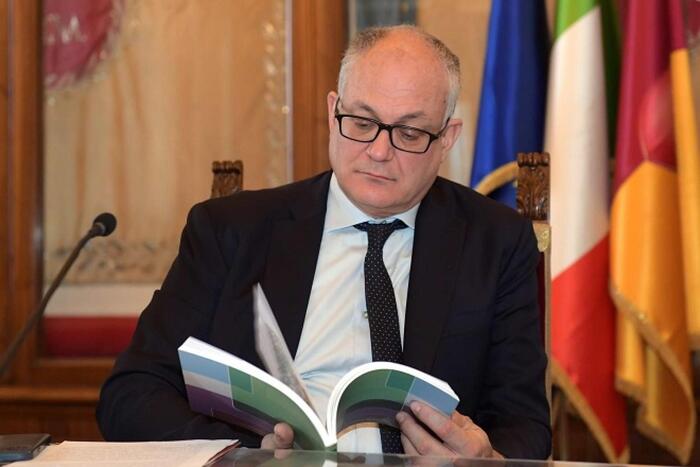I don't want to be a museum customer.
If I attend an institutionally organized conference in which a literary author explains his work to me, I don't feel like a consumer of culture.
If I visit the Roman site of Itálica, I feel like nothing more than a lucky Sevillian who can once again set foot in the birthplace of Emperor Trajan.
I am not a parishioner or parishioner when I visit a publicly owned cultural asset, I am not a user or buyer when I enter a museum: I am one more citizen who enjoys an inherited heritage.
I am the same person who feels like a consumer when buying books or movie tickets, but I see very clearly the line that must exist between the culture produced by public organizations and by private companies.
I know that when I enjoy a culture of public initiative, I am participating in an event where professionals are involved, perhaps more than I imagine and less paid than I think.
I am aware that in the administrations there are conservators, archivists and technicians who decide, for example, which route is assigned to visit a site or what is explained on an informative sign.
It is not my profession, but I know that there is also a management of public cultural spending supervised by professionals: auditors who are aware of how much and when common money can be disbursed to project an exhibition, a series of conferences or an artistic residency program .
It reassures me to know that most of them belong to the sector of civil servants and that,
Although government changes may change the direction of cultural policy, there is a stable group of specialists in the field who take care of cultural assets, people who have gone through a selective process: technicians who know how to program a creative activity but who also know the management and control mechanisms that guarantee, for example, the maintenance of infrastructures, risk prevention, permits, licenses and the corresponding agreements.
The officials of Culture, of state, regional or local competence, take care of this good that the citizens inherit, with the mission that, maintained and protected, it passes to the next generation.
technicians who know how to program a creative activity but who also know the management and control mechanisms that guarantee, for example, the maintenance of infrastructures, risk prevention, permits, licenses and the corresponding agreements.
The officials of Culture, of state, regional or local competence, take care of this good that the citizens inherit, with the mission that, maintained and protected, it passes to the next generation.
technicians who know how to program a creative activity but who also know the management and control mechanisms that guarantee, for example, the maintenance of infrastructures, risk prevention, permits, licenses and the corresponding agreements.
The officials of Culture, of state, regional or local competence, take care of this good that the citizens inherit, with the mission that, maintained and protected, it passes to the next generation.
Archives, museums, monumental complexes do not constitute an industry, they are not commercial or mercantile products;
enjoying them is not consuming them.
Many politicians talk in those terms, but I think they should reconsider.
The expression “cultural industry” is tricky, it has its history;
It was put into circulation in the forties by Theodor Adorno and Max Horkheimer with a negative meaning, which pointed to the serialization and standardization of art, contrary to the value given to it now.
The underlying idea, with which its authors were very critical, was that the new content generated from the cultural industry would be tailor-made for the markets and could be sustained exclusively with the profits that these themselves produced.
The later revision of the term towards the plural “cultural industries” (which,
for example, adopted by Unesco to talk about the production and trade of creative content) has been generalizing, but it seems to me equally worth reviewing.
When talking about industry, it is legitimate to treat cultural assets as an exploitable element in capitalist economic terms;
we speak of user or client because it is only seen in the citizen who visits the museum or who attends a conference to a potential consumer.
In such terms, cultural assets are warehouses or, even worse, department stores, all the more attractive if we turn them into entertainment venues (another industry, by the way, like animation).
Bad thing.
it is legitimized that the cultural asset is treated as an exploitable element in capitalist economic terms;
we speak of user or client because it is only seen in the citizen who visits the museum or who attends a conference to a potential consumer.
In such terms, cultural goods are warehouses or, even worse, department stores, all the more attractive if we turn them into entertainment venues (another industry, by the way, like animation).
Bad thing.
it is legitimized that the cultural asset is treated as an exploitable element in capitalist economic terms;
we speak of user or client because it is only seen in the citizen who visits the museum or who attends a conference to a potential consumer.
In such terms, cultural goods are warehouses or, even worse, department stores, all the more attractive if we turn them into entertainment venues (another industry, by the way, like animation).
Bad thing.
all the more attractive if we turn them into entertainment venues (another industry, by the way, like animation).
Bad thing.
all the more attractive if we turn them into entertainment venues (another industry, by the way, like animation).
Bad thing.
Of course, culture is a fundamental factor in the economy, and no less: in Spain we cannot forget how much tourism visits us because of that culture, and how much of our international brand we owe precisely to those assets that have been managed for decades, with mistakes or successes. , from the administrations, but which are not in themselves an industry and should not be treated as such.
There will be readers who relativize and think that I should not take this expression so seriously, that the "cultural industry" put into the mouth of the manager on duty is simply a fashionable locution.
I hope they are right.
Hopefully those who talk to us about the cultural industry and the customers who consume it are only wanting to say the usual.
If so, I will breathe a sigh of relief thinking that competent people are being left to work underneath the marketing to preserve our publicly owned heritage so that citizens (not customers, but voters) can continue to enjoy it.
Subscribe to continue reading
Read without limits
Keep reading
I'm already a subscriber

/cloudfront-eu-central-1.images.arcpublishing.com/prisa/KFVYJWI3Z5LLRAQTETA7AELZGQ.jpg)






